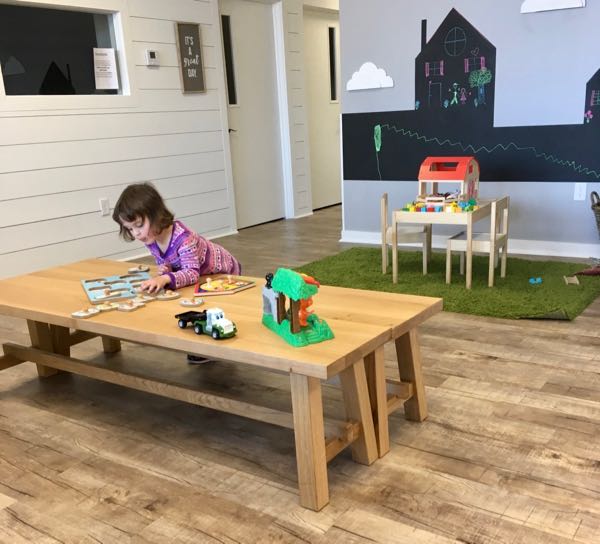
Speech: A Beginning
“Tell me about Charlotte’s birth. Were there any complications? How was your pregnancy?”
I answer as I’ve answered before. We had a great pregnancy and delivery. No complications. I felt good throughout the pregnancy and delivery. She came one week early through a natural birth with no medical intervention. She passed all the required testing at birth.
The questions weren’t unfamiliar. We’d been here before. Throughout the last year my daughter took part in 6 other speech evaluations. On this 7th evaluation, we knew what to expect. We knew the questions and I repeated the same answers.
“Has she had any hearing problems or ear infections?”
No, we’ve had her hearing tested and she’s never had an ear infection. In fact her only sickness has been a low fever once and the occasional runny nose. She’s healthy.
“When did she crawl and walk?”
She was late to crawling at 13 months but quickly followed with walking by 14 months.
“What words do you hear her say?”
This is where I get tripped up. Not because it’s a hard question exactly. Because this is the question that has brought us here in the first place. The question I can’t answer. If I’m truly honest I don’t think she says any words yet. She makes sounds that sometimes sound like words, but not very clearly.
By this time I’m weary. Weary of wondering when and if my daughter will ever talk. Weary at searching for answers late at night and falling into the spiral of doubt and fear that only the internet can bring. Weary at having my hopes crushed when no one is able to help her.
At her 18-month well visit the doctor recommended a speech evaluation since she spoke no words. By this time friends with babies younger than Charlotte were already babbling and beginning their own word explosions. I went back and forth between being overly concerned and not concerned at all. Enough people had told me about their children’s delays in speech that I clung to the hope that this was just her way of taking her time.
My husband and I took our time to schedule a speech evaluation as we quietly said prayers for her words to come. As she approached 2 we still didn’t have any words to count. I called the hospital’s speech therapist and she presented me with options. We could have her evaluated through the state’s early intervention program and if that didn’t work we could then come to the hospital for an evaluation and therapy. We had a plan.
Fast forward a number of months and Charlotte didn’t qualify for the state’s program - missing it both times by a month. Devastated, plus anger and frustration, doesn’t begin to describe my feelings after both of those phone calls. More months passed and we learned of another opportunity at a local college an hour away. We signed her up for twice a week one-on-one therapy and a preschool class for speech and language. I watched through a two-way mirror the student-therapist and Charlotte play games and make sounds and learn sign language. Over the months Charlotte’s non-verbal communication increased. We all learned signs: eat, drink, more, please, mom, dad, and a whole assortment of animals. We felt like we were doing something for Charlotte’s speech.
It was here, finally, sharing with another parent that I learned of a private speech therapy practice. This place, Chatterbox, is where Charlotte’s story of finding her voice begins. It’s during this 7th speech evaluation in over a year that I feel a glimmer of hope.
Sitting in the small room surrounded by games and flash cards and toys used for speech development, Charlotte plays with toys as the therapist and I talk during this evaluation. My not-even-8-week-old-baby sleeps beside me in his car seat. I can’t help but worry about him, too. Will he have trouble forming words and sentences? Does his brain work the same as his sister’s? Will we be waiting for the words to come from his mouth? Do I have the strength and stamina to deal with two children with speech delays?
Following the evaluation it’s obviously clear to the therapist that speech therapy is recommended for Charlotte. She tells us she can’t remember seeing a child use so many signs but not speak the words for them. Her sessions with Charlotte will include sign language and an attempt at saying the words. The therapist will pair a sign with the actual spoken word. We’ll work on hearing Charlotte’s voice make an attempt at the words. I could almost cry at hearing her tell us those words.
Our daughter, not even 3-years-old and without any words to speak, will be given a chance to find her voice.
This is where all the previous evaluations brought us. This is where our tears and frustrations land. This is where a tiny seed of hope is planted. I know it’s just the beginning but it’s one where I’m feeling more excited than anxious.
This is Charlotte’s beginning; the beginning of finding her voice.